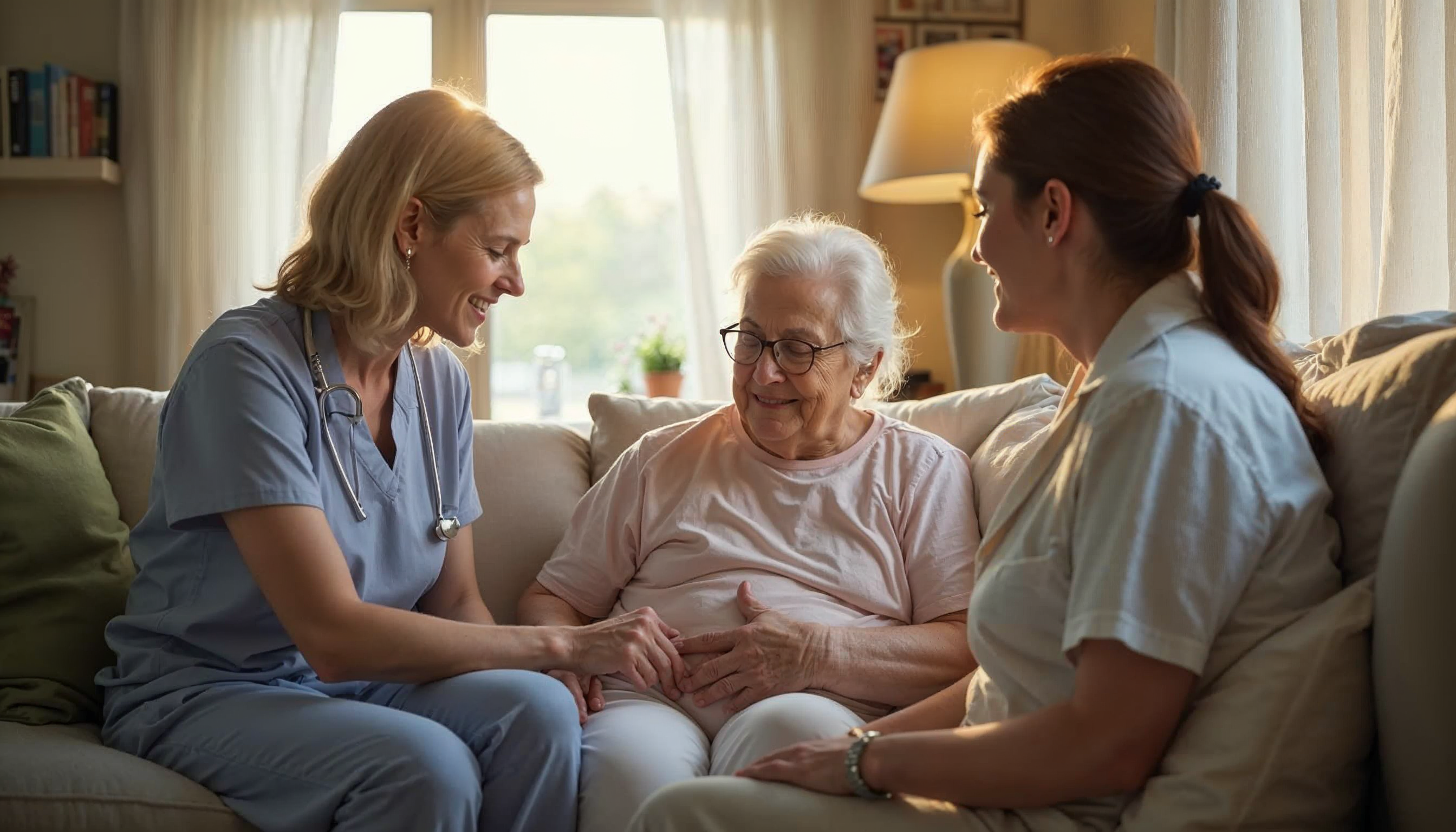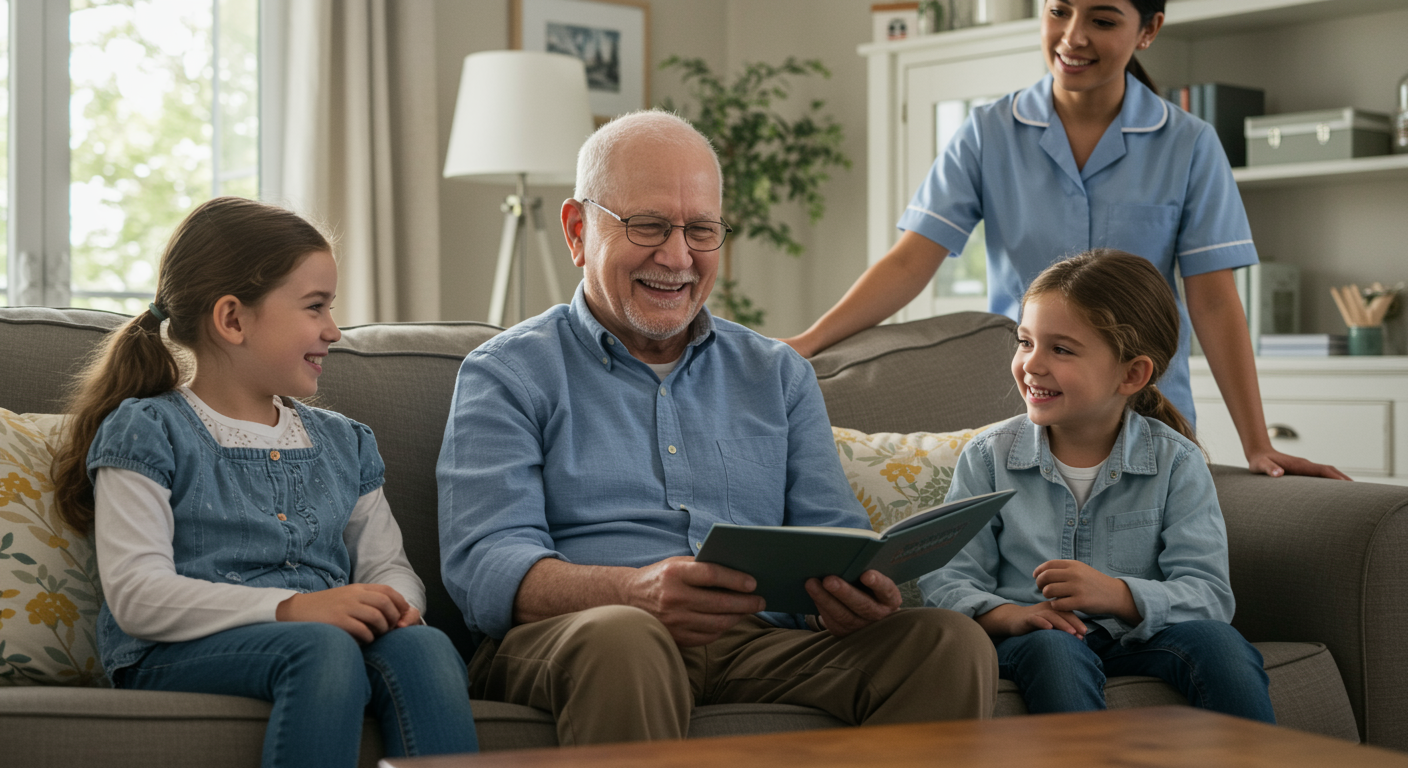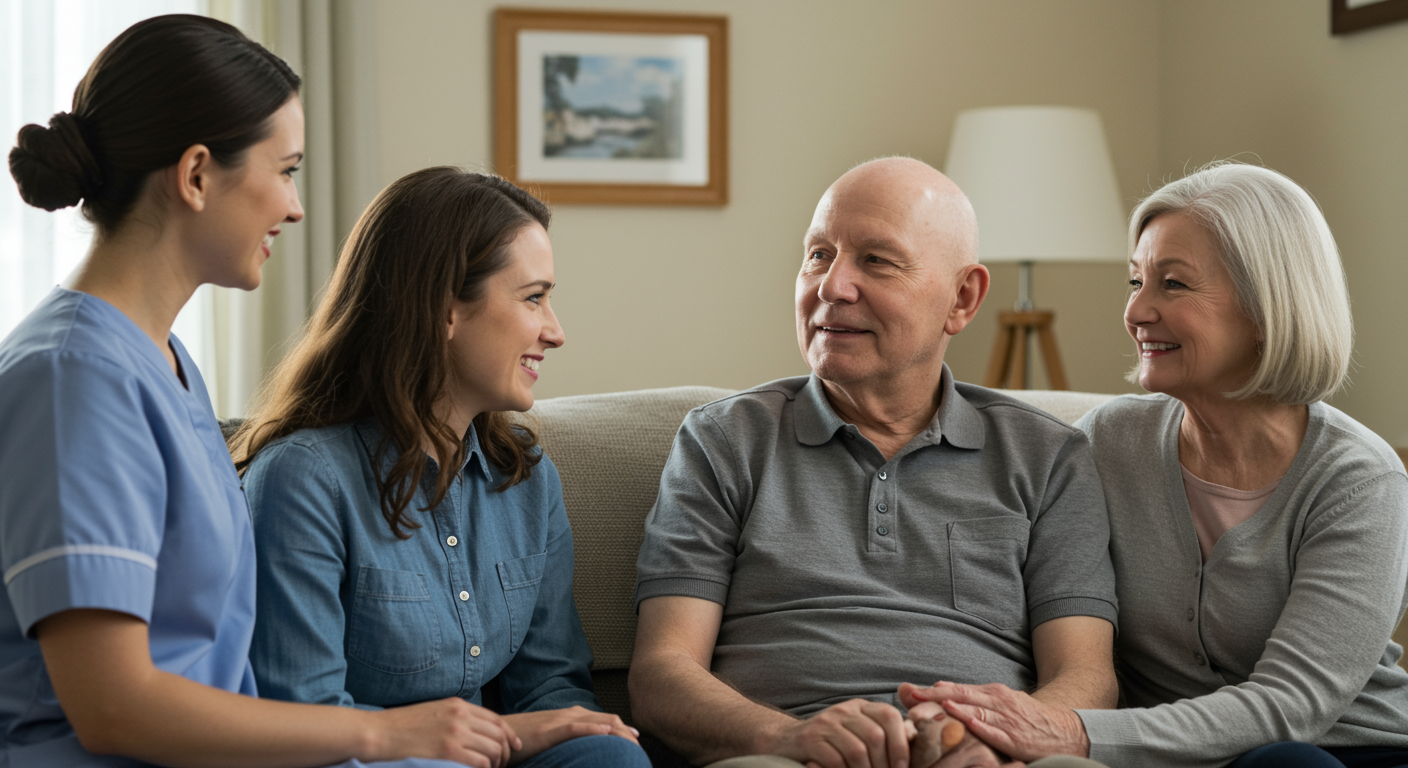When Cancer’s Path Leads to Hospice: A Journey of Comfort and Care
David sat in his oncologist’s office, his daughter Emma holding his hand as they received the news: his stage IV pancreatic cancer had progressed despite treatment. His doctor gently suggested it was time to consider hospice care. Like many cancer patients and their families, they found themselves at a crossroads – one where the focus would shift from fighting the disease to embracing quality of life.

The Transition to Hospice Care
The journey from active cancer treatment to hospice care often feels like stepping into unknown territory. Sarah Matthews, a hospice nurse specialist with 20 years of experience working with cancer patients, explains, “This transition isn’t about giving up – it’s about redefining hope. We focus on living each day with meaning and comfort, rather than enduring difficult treatments with diminishing returns.”
Understanding the Timeline
For David, the first question was timing. His oncologist explained that hospice becomes an option when:
- Cancer has progressed despite treatment
- Life expectancy is approximately six months or less
- The burden of continued treatment outweighs potential benefits
The patient chooses to focus on comfort care.

What Makes Cancer Care in Hospice Different?
Cancer presents unique challenges that hospice teams are specifically trained to address. Marie Chen, a hospice medical director, describes their approach: “With cancer patients, we focus intensively on symptom management. Each type of cancer can cause different symptoms, and we tailor our care accordingly.”
The hospice team typically manages:
- Pain specific to tumor locations and types
- Nausea and appetite changes
- Fatigue and weakness
- Breathing difficulties
- Anxiety and emotional distress
- Side effects from previous treatments

A Day in Hospice Care
Emma remembers how their daily routine transformed under hospice care. “Instead of rushing to appointments and treatments, Dad could stay home. The hospice team came to us, and they knew exactly what to do for his specific type of cancer.”
The hospice team coordinates:
- Regular nurse visits to monitor symptoms
- Medication management and adjustments
- Personal care assistance
- Emotional and spiritual support
- Family education and support
- 24/7 on-call assistance
Addressing Cancer-Specific Symptoms
Lisa Wong, an oncology-trained hospice nurse, explains their specialized approach: “Cancer patients often experience clusters of symptoms that require careful management. We use a combination of medications and non-pharmaceutical approaches to ensure comfort.”
For David, this meant receiving:
- Long-acting pain medications with breakthrough options
- Anti-nausea medications
- Oxygen therapy when needed
- Anxiety management
- Specialized positioning for comfort
- Gentle massage therapy
Supporting the Family
Cancer affects the entire family, and hospice care acknowledges this reality. “We found ourselves dealing with not just Dad’s physical needs, but our whole family’s emotional journey,” Emma shares. The hospice team provided:
- Education about what to expect
- Training for family caregivers
- Emotional support and counseling
- Respite care when needed
- Guidance through difficult decisions

Making Meaningful Moments
Despite the challenges, hospice care created space for important moments. David was able to:
- Spend quality time with family without the burden of treatment schedules
- Complete important personal projects
- Share stories and wisdom with his grandchildren
- Find peace with his journey
- Maintain dignity through professional care

The Role of Previous Cancer Care
Jennifer Roberts, a hospice social worker, emphasizes the importance of understanding the patient’s cancer journey: “Many patients have undergone extensive treatments. We honor that journey while helping them transition to comfort care. Their oncology team remains an important part of their support system.”
Looking Forward
As David’s journey progressed, the hospice team helped the family prepare for changes while maintaining hope for good days. “They helped us understand what to expect without overwhelming us,” Emma recalls. “We learned to appreciate each moment while being prepared for what was coming.”
Finding Peace in the Journey
For David and his family, hospice provided more than medical care – it offered a way to live fully despite cancer’s progression. “Hospice helped us shift our focus from fighting cancer to embracing life,” Emma reflects. “Dad was comfortable, at peace, and surrounded by love. In the end, that’s what mattered most.”

The transition to hospice care for cancer patients represents a shift in focus, not a surrender. It offers specialized care that acknowledges both the unique challenges of cancer and the universal human need for comfort, dignity, and meaningful connections at life’s end. Through expert symptom management, emotional support, and family-centered care, hospice helps patients and families navigate this journey with grace and peace.
